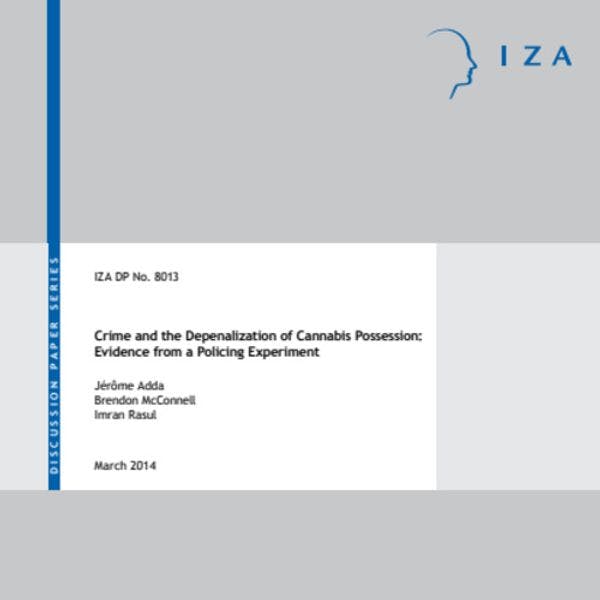Criminalité et dépénalisation de la possession de cannabis: Preuves obtenues lors d’expériences de maintien de l'ordre
Ce document évalue l’impact de la dépénalisation de la possession de faibles quantités de cannabis sur la criminalité dans le quartier londonien de Lambeth.
Pour en savoir plus, veuillez lire les informations ci-dessous (en anglais).
Abonnez-vous à l'Alerte mensuelle de l'IDPC pour recevoir des informations relatives à la politique des drogues.
The authors evaluated the impact on crime of a localized policing experiment that depenalized the possession of small quantities of cannabis in the London borough of Lambeth.
Such a policy can:
- impact the demand for cannabis in Lambeth as users move there to purchase cannabis;
- enable the Lambeth police to reallocate effort towards other types of crime.
The authors investigated whether the depenalization policy impacts the level and composition of crime, using administrative records on criminal offences by drug type, and for seven types of nondrug crime. They found that depenalization in Lambeth led to significant increases in cannabis possession offences that persisted well after the policy experiment ended. They found evidence that the policy caused the police to reallocate effort towards crimes related to the supply of Class-A drugs, as well as reallocating effort towards non-drug crime: there are significant reductions in five types of non-drug crime, and significant improvements in police effectiveness against such crimes as measured by arrest and clear-up rates.
Keep up-to-date with drug policy developments by subscribing to the IDPC Monthly Alert.
